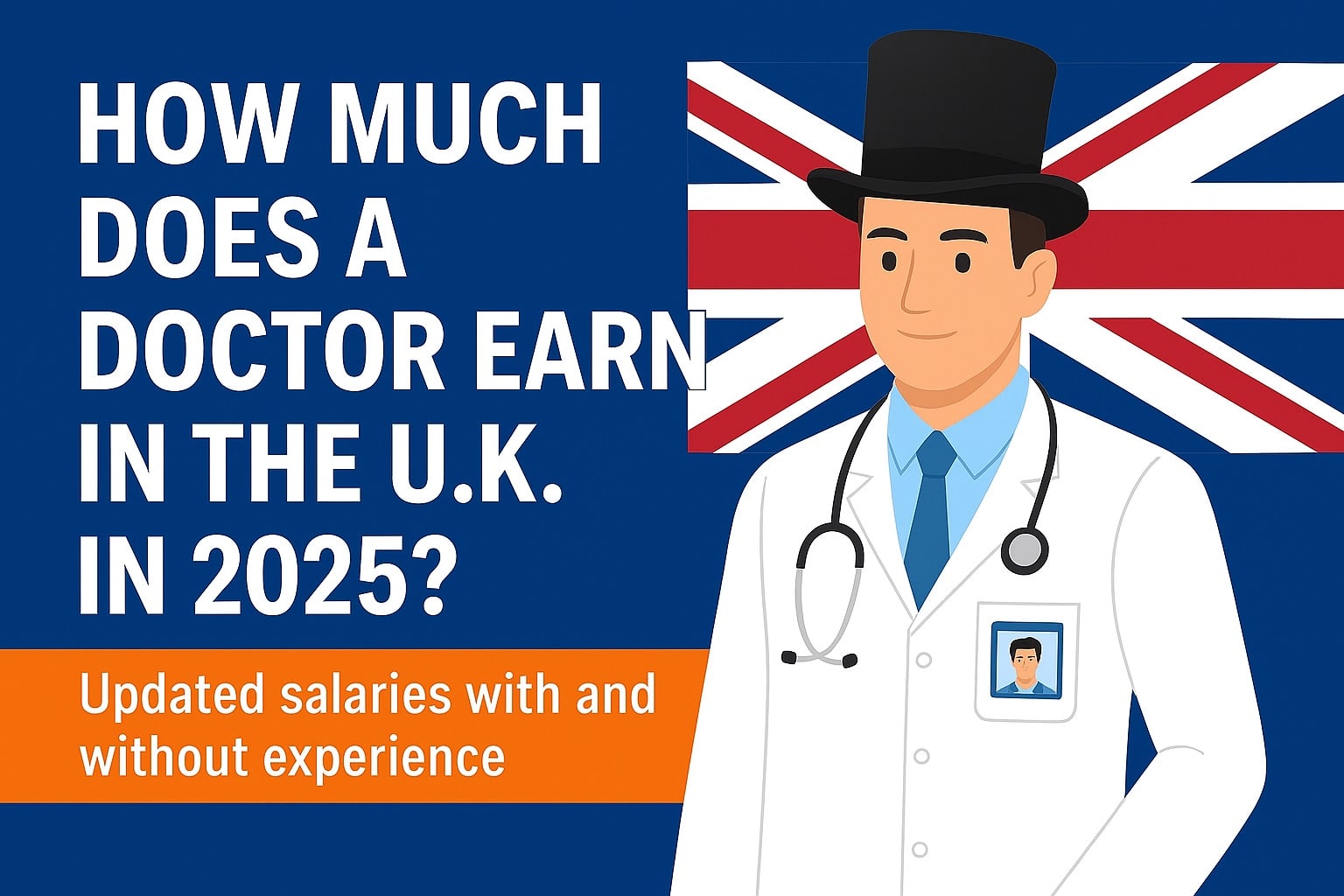


Medicine in the UK is one of the most prestigious and highly regulated professions within the National Health Service (NHS). However, it is also one of the most demanding careers, requiring years of training, long hours, and significant responsibility. Below is updated information on salaries, working hours, conditions, the medical career path, where to study, approximate costs, and future prospects for doctors in 2025.
A junior doctor without experience makes around £2,916 per month (~£35,000 annually), while an experienced doctor, such as a General Practitioner (GP) or specialist, can make up to £10,500 per month (~£126,000 annually).
A junior doctor without experience makes approximately £35,000 per year, while an experienced doctor, such as a General Practitioner or specialist, can make around £126,000 per year. Salaries vary by city and sector, with higher earnings in private practice or major cities like London.
A newly graduated doctor starting in the NHS or private clinics makes approximately £2,916 per month (~3,700 USD).
After years of practice and specialization, doctors in the UK can make an average of £10,500 per month (~13,300 USD).
Doctors typically work 40–60 hours per week, with on-call shifts extending to 12, 24, or even 36 hours.
| City | Junior Doctor | Experienced Doctor |
|---|---|---|
| London | £3,200 | £11,200 |
| Manchester | £2,900 | £10,400 |
| Birmingham | £2,850 | £10,200 |
| Liverpool | £2,800 | £10,000 |
| Edinburgh | £2,950 | £10,300 |
| Glasgow | £2,900 | £10,200 |
| Belfast | £2,850 | £10,000 |
Note: Salaries in London are higher due to the elevated cost of living.
NHS:
Private Sector:
The medical career in the UK is rigorous, requiring significant time and dedication. The degree lasts 5–6 years, followed by a mandatory 2-year Foundation Programme (FY1 and FY2). Specialization training takes an additional 3–8 years, depending on the field (e.g., pediatrics, surgery, cardiology). Students begin with basic sciences (anatomy, biochemistry, physiology) and progress to clinical placements in hospitals and health centers.
Entry requires competitive exams (e.g., UCAT or BMAT) and high A-level grades. The Foundation Programme involves rotations across specialties, and specialization requires further exams and training.
The UK is home to world-renowned medical schools. Top institutions include:
Choosing a school depends on location, prestige, and focus (research, clinical practice, or community health).
Studying medicine in the UK varies significantly between local and international students. Below is a cost breakdown:
| Item | UK Students | International Students | Notes |
|---|---|---|---|
| Tuition (annual) | £9,250 | £25,000–£45,000 | UK fees capped; international fees vary by university. |
| Total Cost (5–6 years) | £46,250–£55,500 | £125,000–£270,000 | Excludes additional expenses. |
| Accommodation and Food (annual) | £9,000–£12,000 | £9,000–£12,000 | Higher in London; lower in smaller cities. |
| Books and Materials (annual) | £1,000–£2,000 | £1,000–£2,000 | Includes textbooks, medical equipment (e.g., stethoscopes). |
UK students can access government loans to cover tuition and living costs, repayable after graduation based on income. International students often rely on scholarships, personal funds, or loans. Costs are higher in London but may be offset by scholarships or part-time work (where permitted).
A doctor’s salary in the UK in 2025 depends on experience and location:
While studying medicine in the UK is costly and demanding, the career offers significant growth opportunities and high earning potential, especially in specialized fields and private practice.
Do it easily with our online comparator. Visit: https://micomparador.life/
⬅ Back to articles